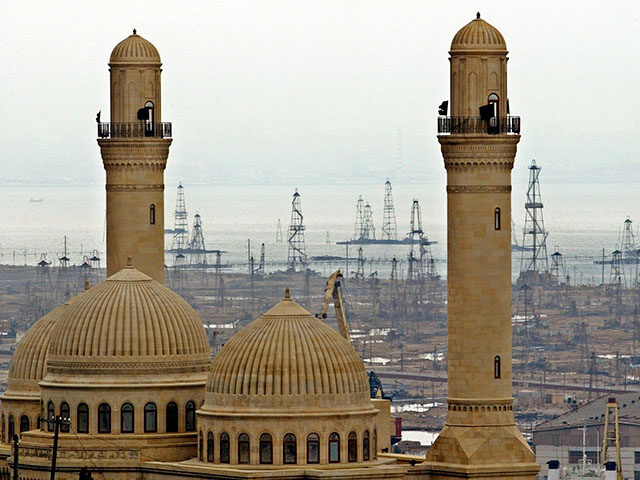Climate groups are crying foul that Azerbaijan, host of the COP29 global climate summit in November, is planning to dramatically increase its production of natural gas over the next decade.
The UK Guardian on Wednesday cited a joint report from two environmental groups called Urgewald and CEE Bankwatch, that denounced Azerbaijan’s climate plans as “critically insufficient.”
“Azerbaijan is among a tiny group of countries that has weakened its climate target [and] the country is doubling down on fossil fuel extraction,” the report said.
The report said Azerbaijan’s state oil and gas company, Socar, is planning to increase natural gas production from 37 billion cubic meters (bcm) in 2024 to 49 bcm by 2033. Some of this production will drive a 17-percent increase in exports to the European Union (EU), which was highly dependent upon Russian natural gas before the Ukraine invasion.
“Given Socar’s pivotal role in Azerbaijan’s economy and its close ties to the country’s political elite, its influence will surely be felt throughout the climate negotiations in Baku,” report author Regine Ricter told the Guardian. Baku is the capital of Azerbaijan, where the climate conference will be held in November.
“As we prepare for COP29, we cannot but ask ourselves: did we put the fox in charge of the henhouse?” Richter asked.
The management of the COP29 conference disagreed with this dour assessment, insisting that Azerbaijan’s increased gas production was reasonable and “in line” with U.N. plans to ensure the global transition away from fossil fuels is “just and orderly.”
“Azerbaijan is investing in gas capacity in response to a European request to increase supplies following the disruption of supplies from Russia,” a conference representative said.
“Azerbaijan is intensively developing its abundant solar and wind resources as part of its commitment to becoming a leading supplier of green energy,” the representative added.
The Guardian suggested one reason climate groups are irritated by Azerbaijan’s natural gas heresy is that last year’s COP28 conference was held in oil-rich Dubai and presided over by Sultan Al Jaber, president of the United Arab Emirates (UAE) state oil company Adnoc.
The sultan was an outspoken critic of alarmist demands for an immediate end to fossil fuels and some climate groups accused him of engineering a disappointing outcome to COP28. Those activists are now seething as even the vague promise to “transition away” gradually from fossil fuels at COP28 is betrayed by increased gas production from the host of COP29. Another aggravating echo of the last climate conference is that Socar, like Adnoc, has a heavy-hitting political patron in the form of Azerbaijani President Ilham Aliyev, an Islamist who regards his country’s natural resources as a “gift from God” to be exploited with gusto.
Azerbaijan’s heavenly gifts include about 2.5 trillion cubic meters of natural gas, plus about 7 billion barrels of oil, including hearty offshore drilling in the Caspian Sea. Whatever Azerbaijan might be planning to do about solar and wind power in the future, it is currently about 98 percent dependent on fossil fuels, with 90 percent of its electricity coming from natural gas.
Some climate activists deride Azerbaijan’s modest investments in green energy as a smokescreen for increased fossil fuel production – at best an effort to slightly reduce domestic reliance on natural gas so Socar has more product to export, at worst a bit of theatrical greenwashing to make European customers feel better about buying Azerbaijani gas and oil.

COMMENTS
Please let us know if you're having issues with commenting.